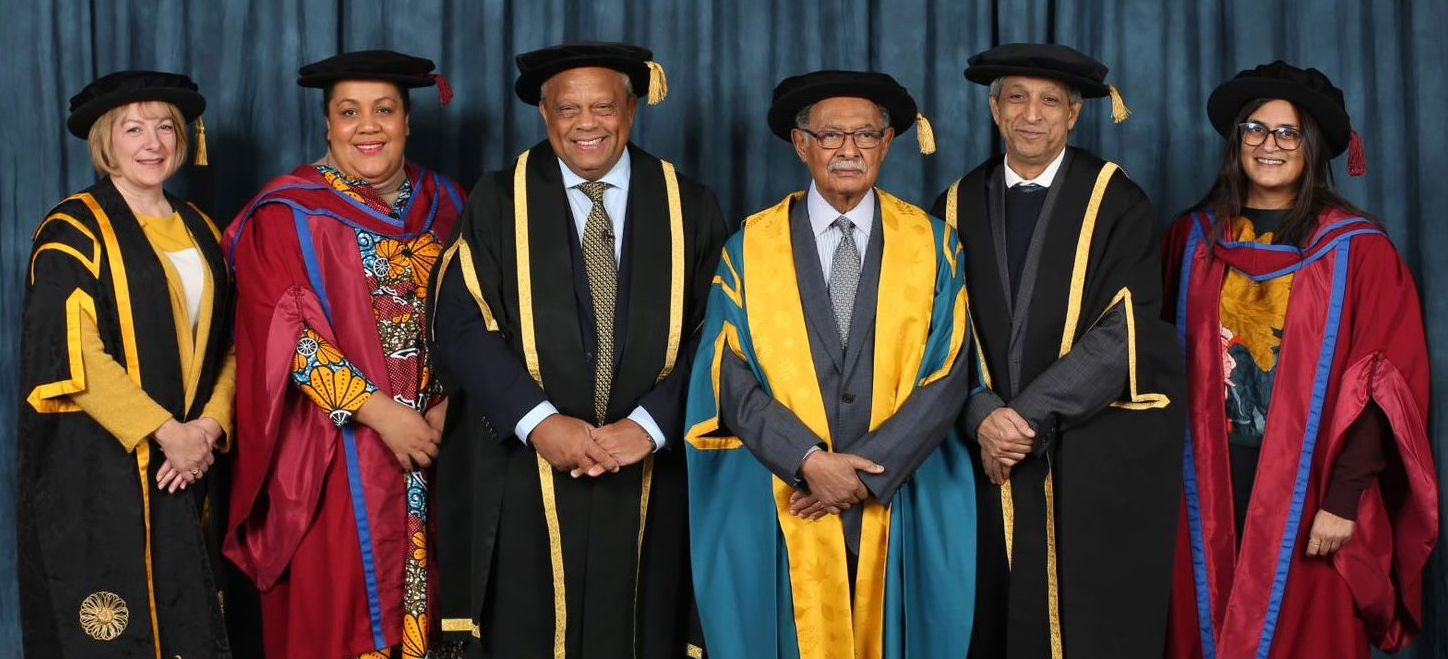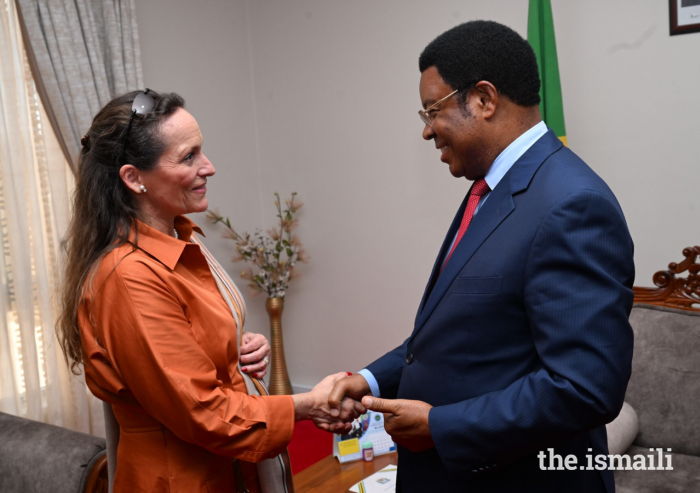Dr Topan was recognised for his initiative in three projects, which are still in place: introducing the year-abroad programme for students studying Swahili; initiating the MA degree in African literature; and, with with his colleague Professor Graham Furniss, for acquiring funding and overseeing the commencement of the Swahili manuscripts online project.
When asked how he felt at being made a fellow of his alma mater, Dr Topan said he felt humbled and elated at the same time.
“It came as a surprise actually!” he explained. “It’s pleasant, it’s good, it’s humbling. I feel so grateful that it has happened at this time of my life.”
After completing his A-levels at a college in Bournemouth on England’s south coast in 1962, Dr Topan joined SOAS in London where he graduated with a degree in African Studies comprising social anthropology, linguistics, and Swahili. He proceeded immediately onto PhD studies for which he conducted fieldwork in Mombasa, Kenya, in 1966, recording and analysing songs sung in ceremonies of spirit possession as a genre of Swahili oral literature, which he is thinking of publishing now.
“I am doing it backwards,” he said in jest, as most academics publish their doctoral research at the start of their career.
He was awarded his doctorate in 1972, after suspending his studies for three years by accepting a position as lecturer at the then University College, Dar es Salaam (later the University of Dar es Salaam). These were significant years for Swahili studies as Dr Topan introduced the teaching of Swahili literature in Swahili in 1968, and, with his friend and colleague, Professor Mohamed Abdulaziz, they introduced the degree of ‘BA Swahili & Linguistics’ in 1969. For this, they are fondly remembered as ‘the fathers of Swahili studies.’
Dr Topan remembers Dar es Salaam as a booming city in the late 1960s, and the University as a dynamic intellectual hub that attracted scholars from different parts of the world. Dr Topan says the euphoria of freedom and independence was strong at the time, and said that “…now looking back, you feel, ‘wow, we were breaking new ground!’”
Tanzania had adopted Swahili as a national language and, as a way of enhancing its development, a Department of Swahili was created at the University of Dar es Salaam in 1970. Dr Topan was its head for a year before returning to London to complete his PhD. He joined the University of Nairobi in 1972 where he also introduced the teaching of Swahili literature in Swahili. After that, as he says, he had the desire to learn Arabic in an Arabic-speaking country; to that end, he worked at the University of Riyadh until 1977 where he taught English and learned Arabic. When asked why, he responded that “…this urge, it just came from within.”
The Institute of Ismaili Studies (IIS) was formally inaugurated in December 1977. Dr Topan was the second scholar to join the institute. He says he was fortunate to have had the opportunity to join the nascent institution “from the ground floor” and to have witnessed its development for a period of 16 years. He was appointed head of the Waezeen & Teacher Education Programme (WTEP) in 1978 with the initial task of designing a curriculum, and recruiting and training students from the global Jamat who would return to serve in their respective countries. The first cohort of international students arrived at the IIS in February 1980. Dr Topan’s other projects during this time included writing ‘The Concept of Man,’ and working with colleagues to write, produce, and oversee the pre-school booklets which became part of the IIS’ Ta’lim series.
After retiring from SOAS in 2006, Professor Topan was invited to teach courses in Literature and Tradition at the Aga Khan University’s Institute for the Study of Muslim Civilisations (AKU-ISMC). He subsequently became its head of educational programmes and its interim director from 2009-2013.
AKU-ISMC is celebrating its 20th anniversary this year, and Dr Topan believes the institute will continue to make an impact within and outside the academic world, both as a research and teaching institution, and also as a platform to discuss issues of relevance in varied Muslim contexts.
Academic and Jamati activities often intertwined in Dr Topan’s life. While at school and still a teenager, he remembers delivering his first wa’ez – in Swahili – in Zanzibar Jamatkhana in 1955. He also fondly remembers the immense “honour and privilege” when he was selected by Mawlana Hazar Imam to recite verses of the Qur’an at the Takht-Nashini ceremony in Dar es Salaam on 19 October 1957, and subsequently at Nairobi and Kampala.
“I was only 16 years old at the time,” he remembers.
Later in life he was appointed chair of the Ismaili Tariqah and Religious Education Board for the UK and served on the National Council under president Mahmood Ahmed from 1996-2002. He says that it pleases him to see some of the “youngsters who were then in committees or Mukhi/Kamadias at that time serving in different positions today.”
Another cherished appointment for Dr Topan has been his membership, and later chairmanship, of the Regional Committee of the Early Childhood Madrasa Programme of the Aga Khan Foundation in East Africa from 1995 to 2022.
Professor Topan is also a Swahili playwright and author of short stories: two of his plays have been taught in secondary schools in Tanzania. He says that one of them, Mfalme Juha (The Idiot King) derived its inspiration from a Gujarati story-poem he was taught as a child at the Aga Khan School in Zanzibar called Gandu Raja (andheri nagri).
When asked how he sees the progress of the Jamat in the West, he said he sees it with optimism: “I think the Jamat has diversified a lot. Some have stayed and some families have gone back, which is good. So there has been a link between East Africa and the West, that link is very good for East Africa and for the Jamat. And there is a lot of movement through TKN as well.”
He said the guidance from Hazar Imam has lit the path of his life, from the emphasis on obtaining quality education, meritocracy, and life-long learning, to keeping a balance between din and dunya, which he has aspired to follow all his life. He offers the same message to young members of the Jamat today.









